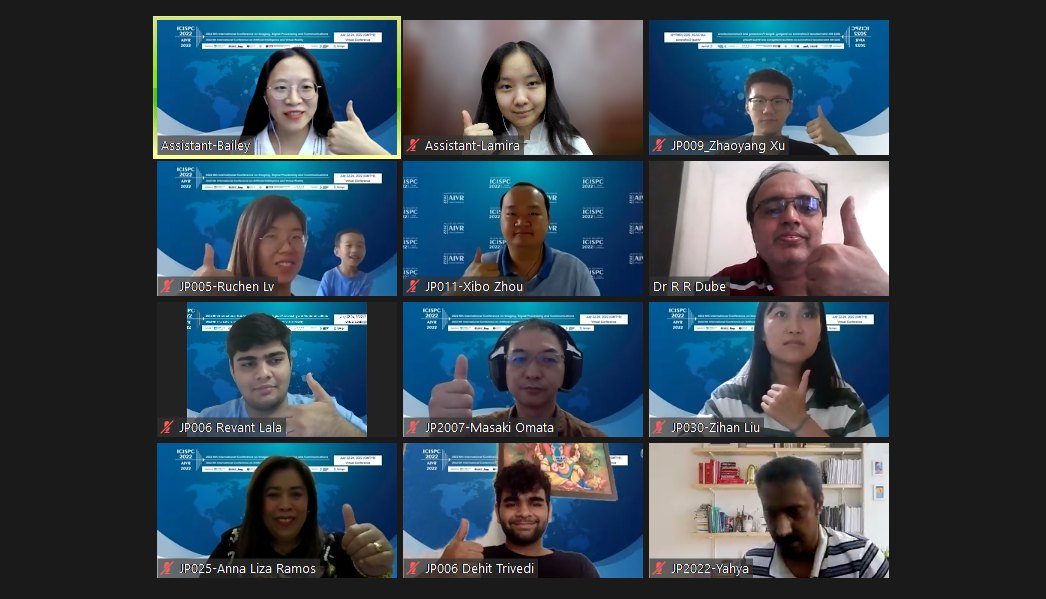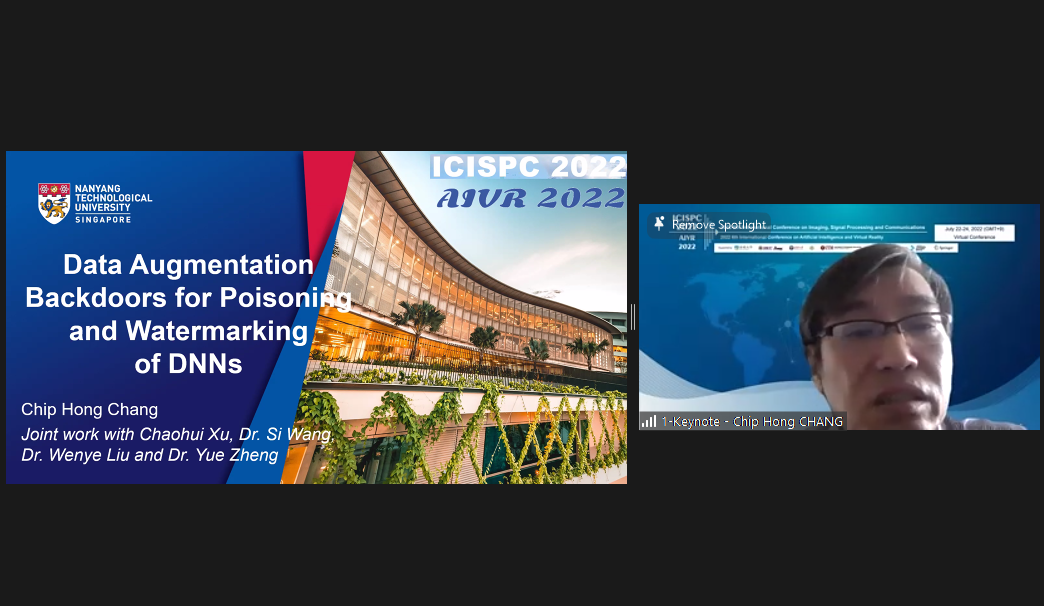AIVR2022 was held online during July 22-24, 2022. We wish to express our sincere appreciation to all participants and the technical program committee. Special appreciation is extended to our keynote and invited speakers.
| Date | Place | Publication | Indexing |
| July 22-24, 2022 | Virtual Conference | Springer-SIST | EI Compendex, Scopus |
Congratulations to the winners of the
best paper presentations.
Session 1: Signal Analysis and
Estimation
Presenter: Xibo Zhou
Harbin Institute of Technology, China
Analyze the Sea Clutter Frequency of
multi-receiving ships for Distributed
Shipborne HF Hybrid Sky-Surface Wave
Radar
Session 2: Intelligent Image Analysis
and Processing
Presenter: Yifan Zhai
Waseda University, Japan
Multi-scale and Bi-path Method Based on
Image Entropy and CNN for Fast CU
Partition in VVC
Session 3: Computer Model and Virtual
Technology
Presenter: Jiaheng Zhang
Nanyang Technological University,
Singapore
Topic-aware Networks for Answer
Selection
Session 4: Electronics and Communication
Engineering
Presenter: Abd Al Rahman Faour
Lebanese International University,
Lebanon
SCR: A Sub-clustering Approach for
Redundancy Reduction Based on Data
Correlation in WSNs



